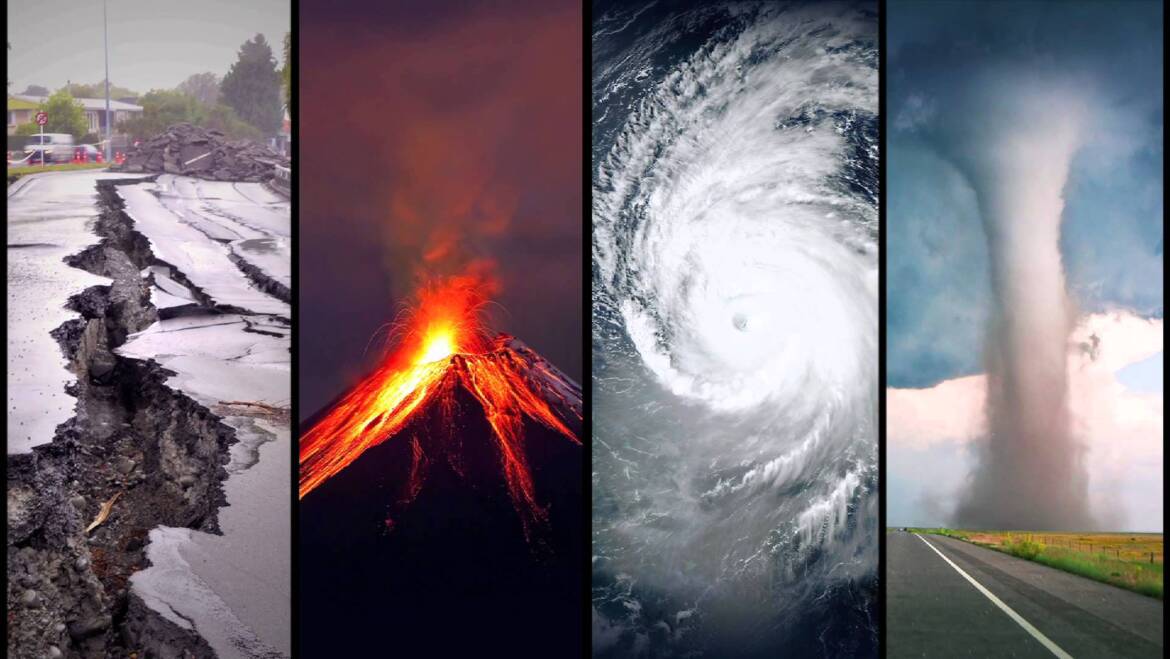According to the National Institutes of Health (NIH), Disasters are a complex global problem; it is an inevitable truth of our life. Every year individuals and communities are being affected by disasters, which disrupt their mental health and well-being. Economic and social development throughout the world is frequently interrupted by natural disasters.
The United Nation International Strategy for Disaster Reduction (UN-IDSR) defines disaster as a serious disruption of the functioning of a community or a society causing widespread human, material, economic or environmental losses which exceed the ability of the affected community or society to cope using its own resources.
The World Health Organization (WHO) defines disaster as a sudden ecologic phenomenon of sufficient magnitude to require external assistance. Disasters are mainly of two types – Natural and Man-made. Natural Disasters are the result of natural causes, for example cyclones, earthquakes, tsunamis and tropical cyclones. Man-made disasters are brought about by human actions, including military conflicts, terrorism, political unrest and industrial accidents. He further argues that there is a superficial conceptualization of disaster in terms of natural and man-made. However, research suggests that both natural and social factors cause disasters, e.g., flooding might be the result of the combination of deforestation and climate change. It’s common for communities and individuals affected by a disaster to experience a range of thoughts, feelings and behaviors that can be intense, confusing and frightening. Fear, for example, is an important and normal reaction that helps activate our body and mind to make decisions to protect our own life and the lives of loved ones. It’s important to know the difference between a common reaction to a stressful or traumatic event and signs that indicate you should seek more support.
Common Reactions
These reactions can be severe and are at their worst in the first week after the event, however, in most cases, they fade over a month. If a person’s day-to-day functioning is seriously affected for more than one month after the event, it’s important to discuss it with a GP or mental health professional. These reactions include:
• feeling overwhelmed
• feeling numb and detached
• inability to focus
• inability to plan ahead
• constant tearfulness
• intrusive memories or bad dreams related to the event
• sleep disturbances
• constant questioning – “What if I had done x, y or z, instead?”
• ‘replaying’ the event and inventing different outcomes in order to be prepared should it happen again.
It is also important to understand that a friend, loved one or work colleague may see these reactions in you, often when you do not. They may see you are detached, unfocused, anxious, or tearful without provocation. Listen to the opinions of people that you trust. It is a sign of respect to friends and family to act on their advice and discuss these issues with a GP or mental health professional.
Beyond a Common Reaction
If you experience any of these symptoms at any time, seek help from a GP or mental health professional:
• a sense that your emotional and/or physical reactions are not normal
• thoughts of self-harm or of ending your life
• loss of hope or interest in the future
• avoiding things that bring back memories of what happened to the point where you’re unable to carry out day-to-day tasks
• frequently being easily startled e.g. jumping when a door slams, and then taking a long time to calm down
• feeling overwhelming fear for no obvious reason
• panic attack symptoms: increased heart rate, breathlessness, shakiness, dizziness and a sudden urge to go to the toilet
• excessive guilt about things that were or weren’t said and done.
Dealing with the Emotional Impact of a Disaster
• spend time with people who care
• give yourself time
• find out about the impact of trauma and what to expect
• try to keep a routine going e.g. eating, sleeping, work, study routines
• return to normal activities
• talk about how you feel about what happened when you are ready
• do things that help you relax
• set realistic goals that keep you motivated, but don’t take on too much (most people in this situation talk of recovery as a journey not a sprint)
• review and reward progress – notice even the small steps
• be prepared for times when you feel you are making no progress, everyone experiences this
• talk about the ups and downs of recovery with friends, family and the health professionals involved in your care
• have a plan to maintain positive changes and plans to deal with times of stress or reminders of the trauma.
Key Facts
Almost all people affected by emergencies will experience psychological distress, which for most people will improve over time.
Among people who have experienced war or other conflict in the previous 10 years, one in five (22%) will have depression, anxiety, post-traumatic stress disorder, bipolar disorder or schizophrenia.
People with severe mental disorders are especially vulnerable during emergencies and need access to mental health care and other basic needs.
International guidelines recommend services at a number of levels ̶ from basic services to clinical care ̶ and indicate that mental health care needs to be made available immediately for specific, urgent mental health problems as part of the health response.
Despite their tragic nature and adverse effects on mental health, emergencies have shown to be opportunities to build sustainable mental health systems for all people in need.


Add Comment